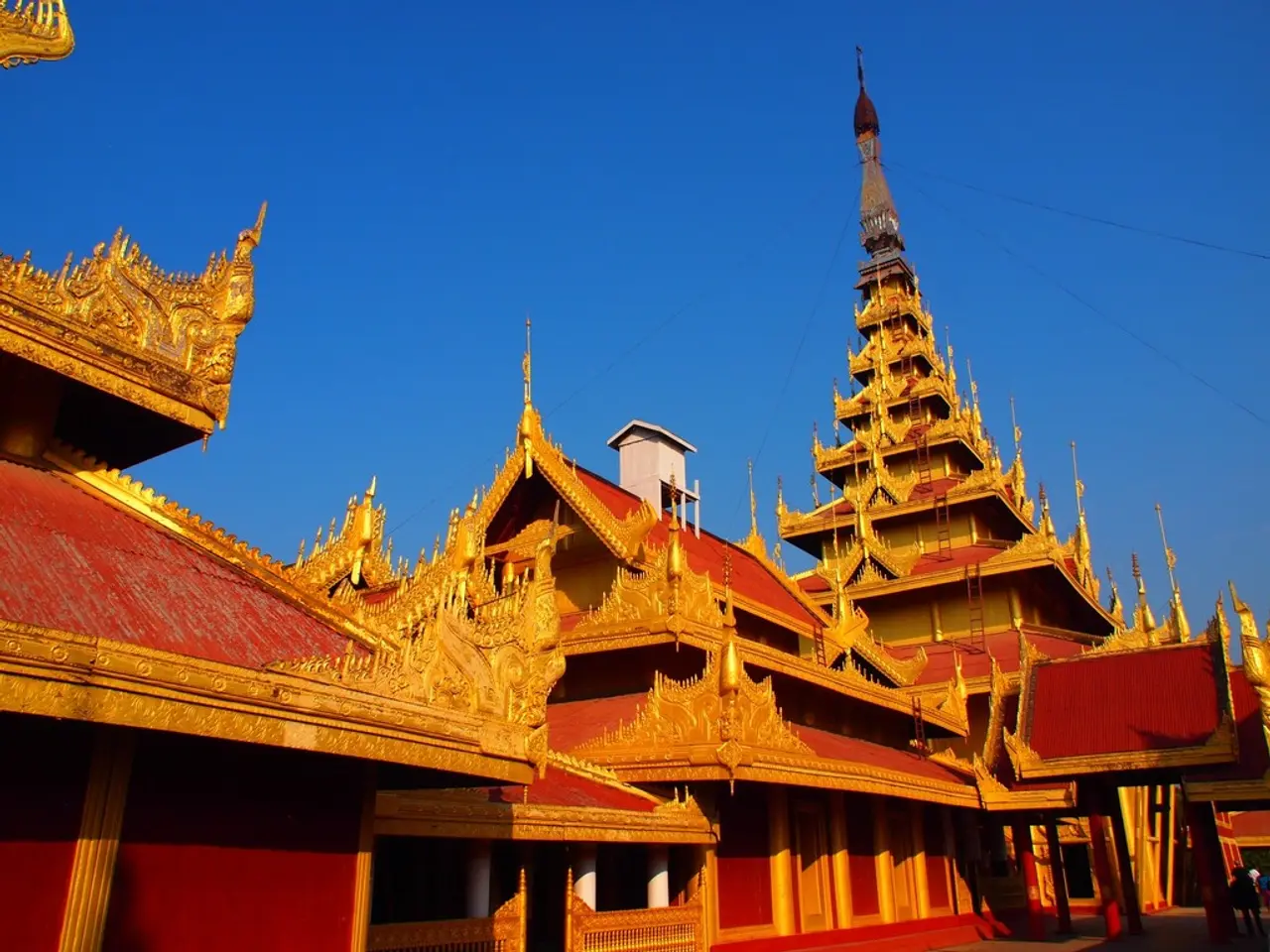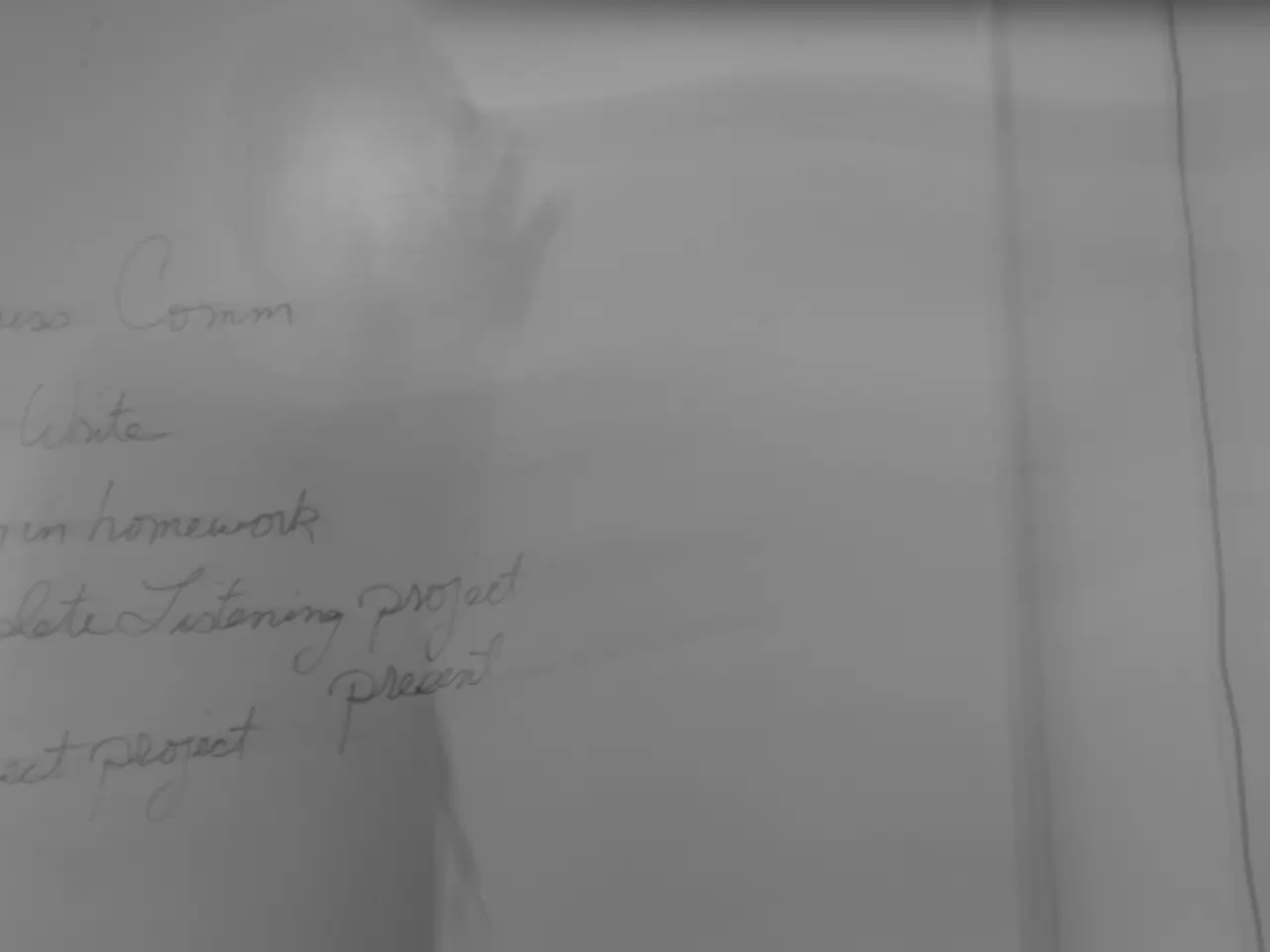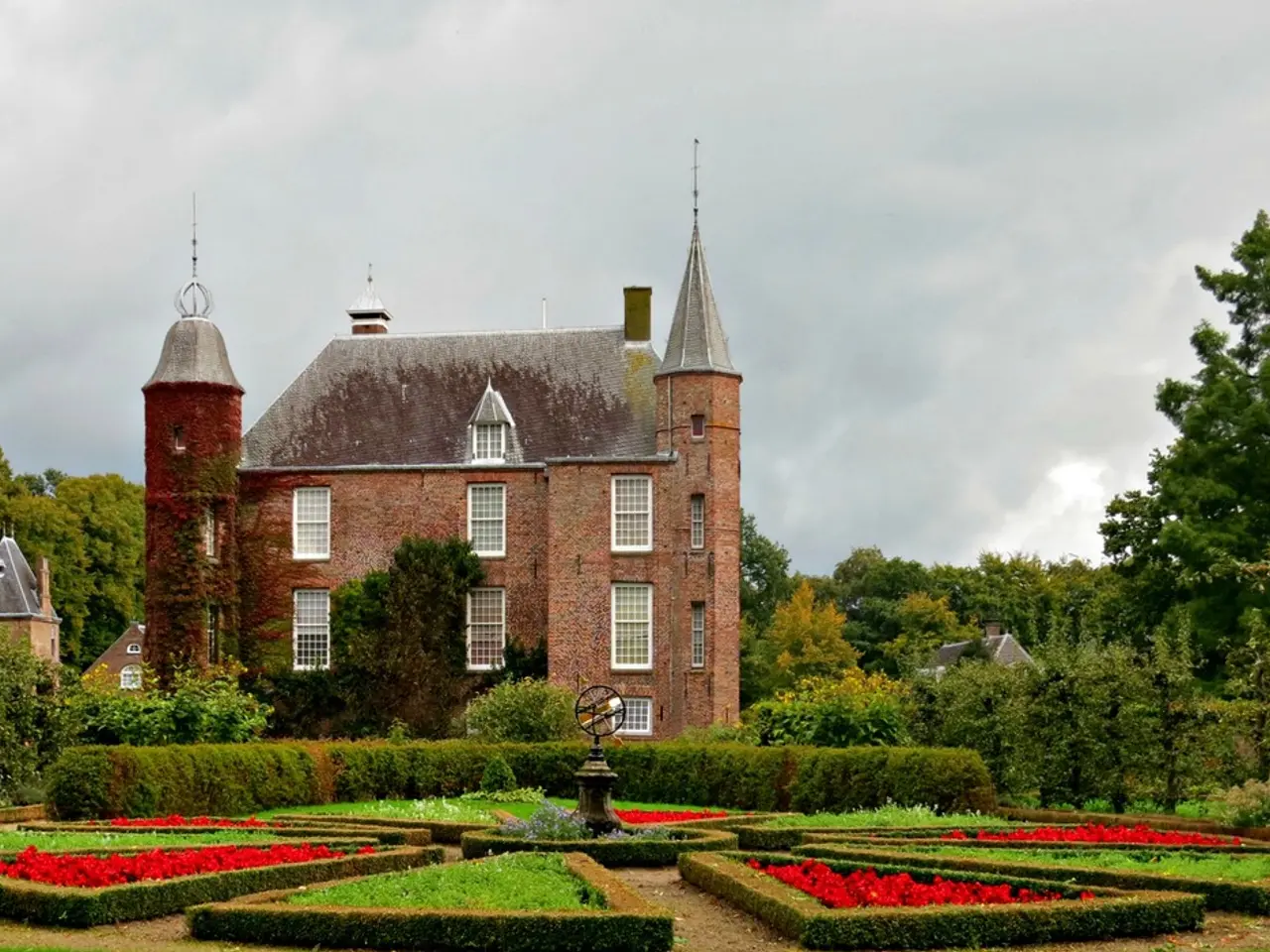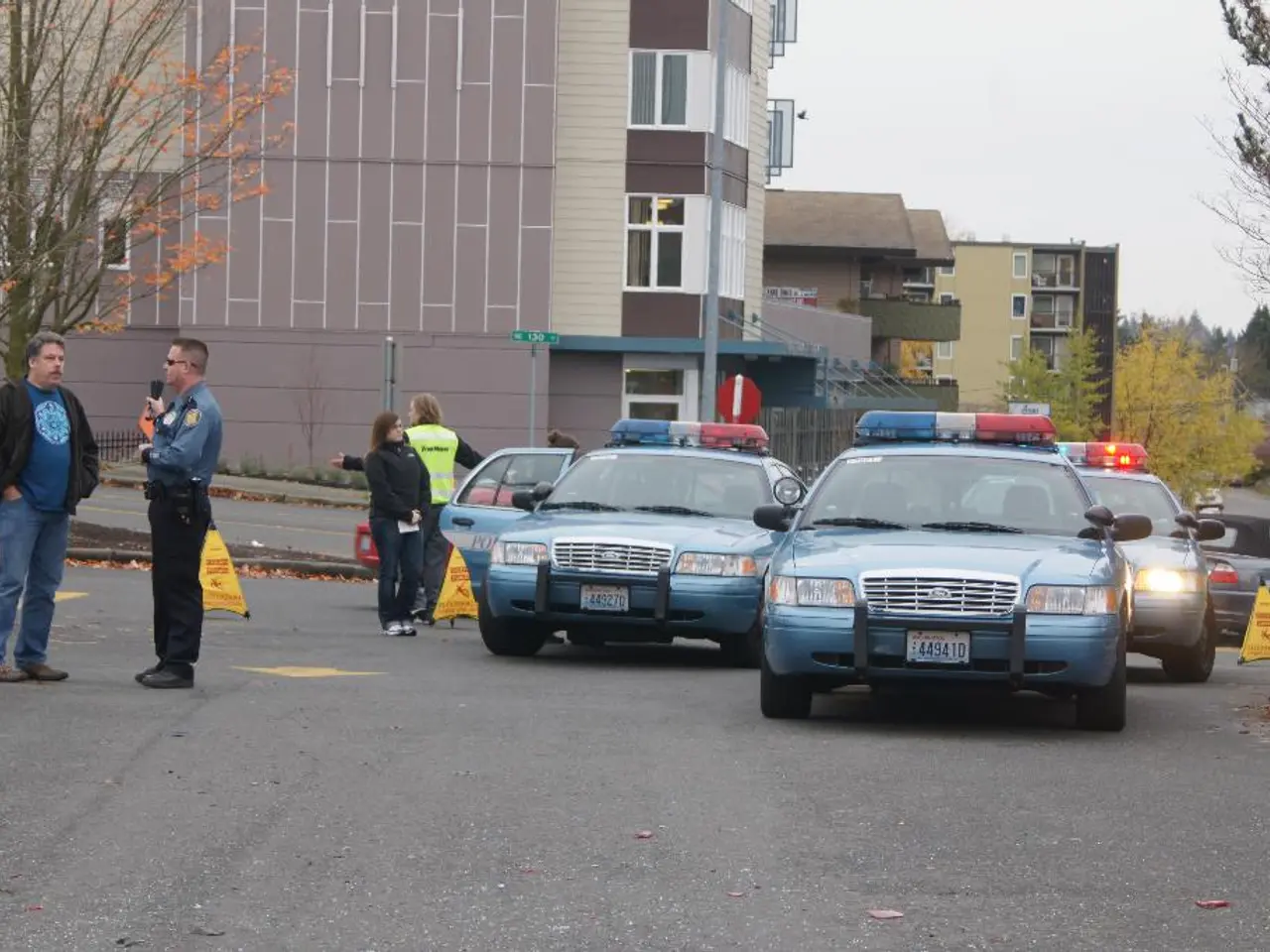Turkish-backed group endorsing a 'Greater Bangladesh' map is met with cautionary warning from Jaishankar in Dhaka.
In the heart of Dhaka, at the prestigious Dhaka University, a controversial map depicting a 'Greater Bangladesh' has caused a stir, straining Indo-Bangladesh relations and fueling nationalist tensions. The map, unveiled during the Pohela Boishakh festivities on April 14, 2025, has raised concerns in India due to its potential implications on national security.
The map, allegedly promoted by some groups based outside Bangladesh, suggests a larger territorial claim that includes parts of Northeast India, a claim that has been refuted by the BanglaFact, the fact-checking division of the Bangladesh government.
The Turkish Youth Federation, a youth organization with links to Islamist outreach campaigns in other regions, is suspected to be connected to this controversy, albeit through indirect channels. The Federation is said to sponsor an organization named Saltanat-e-Bangla, which historically refers to the medieval Islamic Sultanate that ruled Bengal from the 14th to the 16th century. However, the contemporary political implications of this term are not clear.
The issue is being taken seriously by the Indian government, with Indian External Affairs Minister S Jaishankar disclosing a suspected connection in a written reply in Parliament. Jaishankar, however, has remained restrained on the matter, reflecting strategic sensitivity. While he did not outline if India had issued a formal protest to Dhaka about the map controversy, he has indicated that India will likely increase behind-the-scenes diplomatic action.
Congress MP Randeep Surjewala has questioned whether India had raised the issue diplomatically and whether an internal security review of the increasing Turkish and Pakistani activities in Bangladesh had been made. The Pakistani activities in Bangladesh are not explicitly mentioned as ongoing facts, but they are implied in the context of Surjewala's question.
The Bangladesh government has described the map as a historical reference, not implying any modern irredentist demand. Despite this, the map's emergence has raised concerns in India, particularly when amplified through transnational realms. As the row brews, India will likely continue to monitor the situation closely, watching out for those who use cultural spaces to probe geopolitical thresholds.
- The emergence of the controversial map depicting a 'Greater Bangladesh' has sparked a discussion in the realm of 'general news', as it has fueled nationalist tensions, strained Indo-Bangladesh relations, and raised concerns about potential implications on national security, particularly in India.
- The controversy surrounding the map is not limited to domestic politics and war-and-conflicts, as it has also involved foreign entities such as the Turkish Youth Federation and the Islamist outreach campaigns they sponsor, raising issues of 'crime-and-justice' and international diplomacy.







